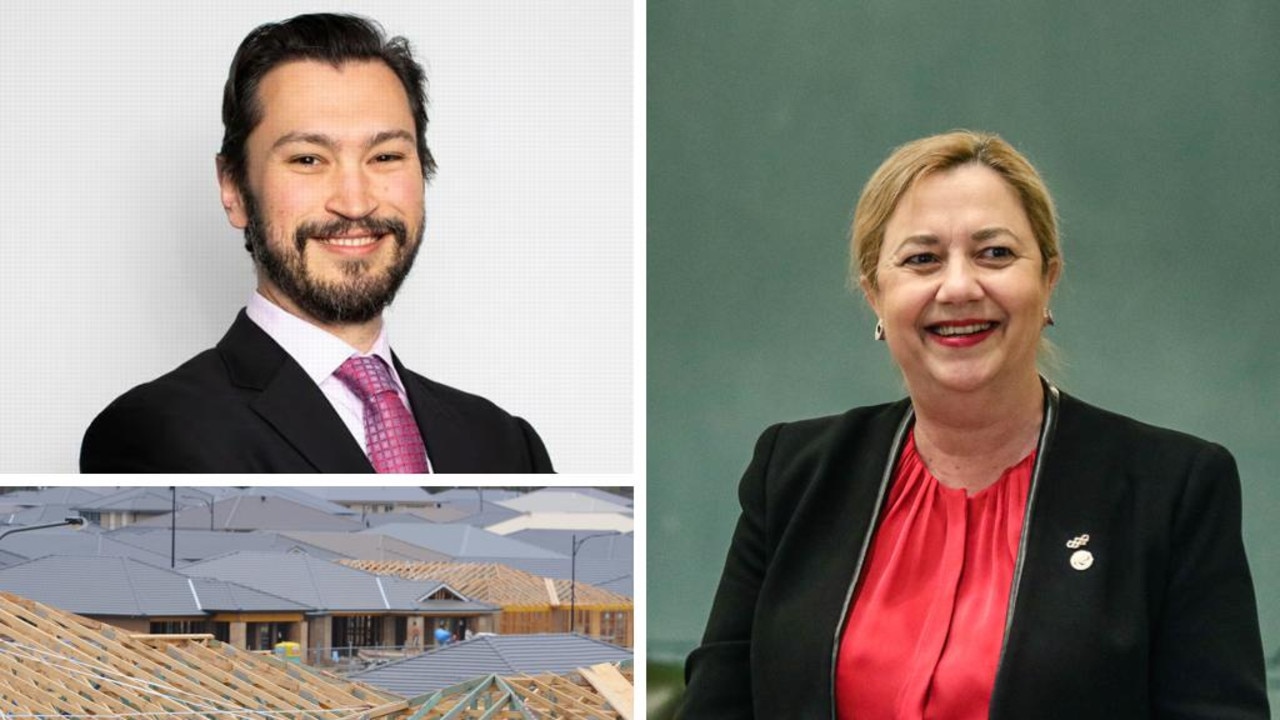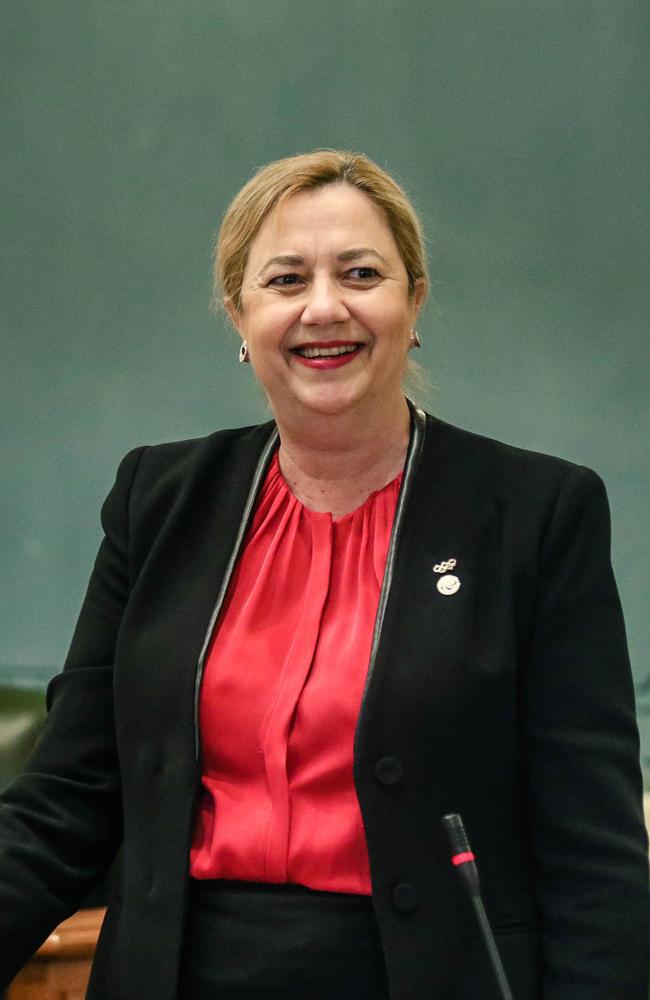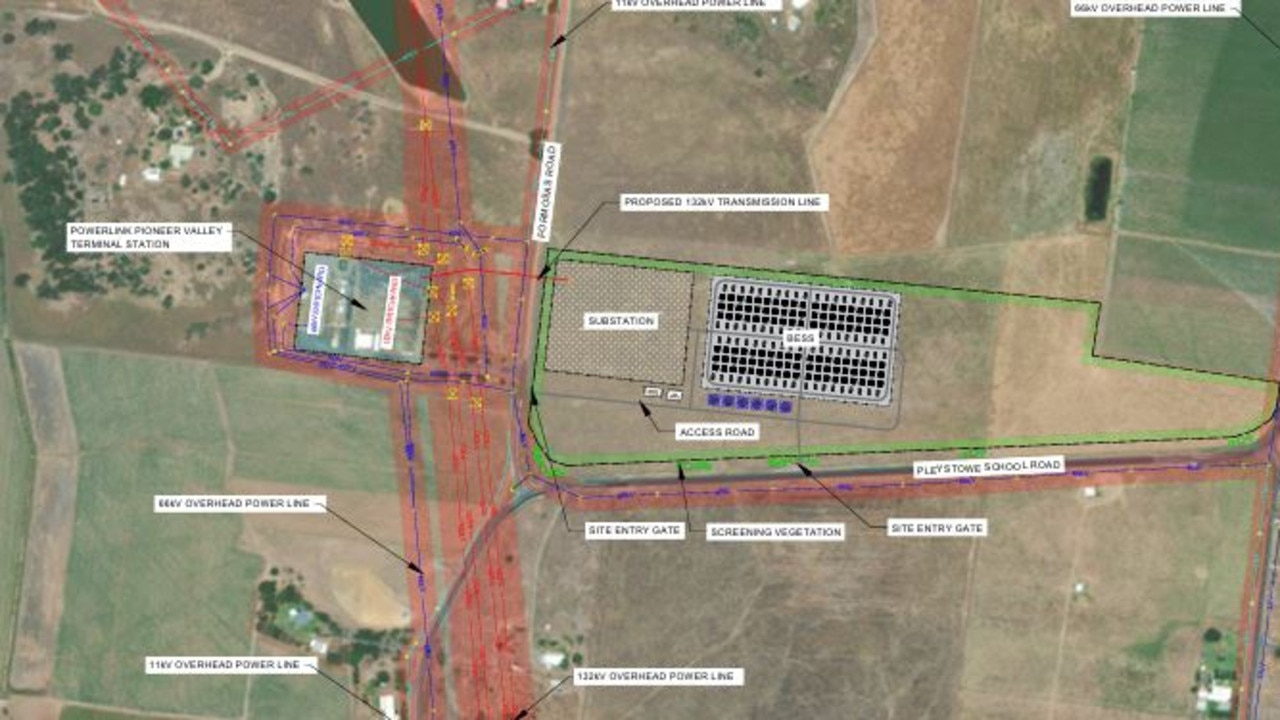Housing Industry Association economist on ending Mackay’s home crisis
A senior economist has revealed how governments can help Mackay residents struggling with housing issues in the wake of Premier Annastacia Palaszczuk‘s rent increase cap.

Property
Don't miss out on the headlines from Property. Followed categories will be added to My News.
An economist for the Housing Industry Association said there were several ways to help the “simply too many people sleeping rough” in Mackay.
Senior economist Tom Devitt addressed the HIA-Mackay Regional Council Industry Outlook Breakfast at Souths Leagues Club, just as Premier Annastacia Palaszczuk confirmed the government would cap rent rises in Question Time.
He said Australian builders and renovators could look forward to small improvements in labour or materials shortages, but policymakers needed to make clear changes to provide short and long-term solutions to the housing crisis.
“In an average year, rental vacancy rates to be around three per cent (but) they’re less than two per cent in every capital city,” Mr Devitt said.
“And that’s just sending rental prices up significantly.

“In terms of the solution, it really is about building more houses (in) the medium term … because that takes time (but) it’s the most important thing we could do.
“In the short term, it's going to be a matter of providing support to the most vulnerable people (with) rental assistance … which should be continued if not expanded.
“There are simply too many stories about people sleeping rough at the moment.”
Mr Devitt’s comments come just as the Palaszczuk government announced a reforms to limit rent increases to once a year.

Currently rent cannot be increased during fixed term agreements, but those on periodic agreements can have rent upped every six months.
The rental cap would bring Queensland in line with Victoria and South Australia, where a yearly rental price change is also enforced.
Mr Devitt said alongside short-term assistance, governments should prioritise higher density housing with planning changes, cash grants or infrastructure investments for councils that “meet and exceed certain housing targets”.
With people across the globe wanting more space in the homes they were confined to during the pandemic, Mr Devitt said the subsequent shortage was unsurprising when “the entire developed world was demanding building materials at the same time”.

Federal schemes like the HomeBuilder grant exacerbated that deficit, leading developers and builders to fall behind schedule and lose money on fixed price projects.
Yet Mr Devitt said there was room for optimism with industry experts “starting to see early signs of these pressures easing”.
“Normally it’s less than nine months to completion for a house, at the moment it’s more like over a year,” Mr Devitt said.
“For the first couple of years it was timber and steel that were major constraints, now it’s labour shortages being the number one constraint.
“But even there, with the return of overseas workers … those constraints are starting to ease as well.
“Next year and in 2025 … for people who are looking to build or get renovations done, (it) should be much easier to obtain a tradie than it is right now.”
More Coverage
Originally published as Housing Industry Association economist on ending Mackay’s home crisis








